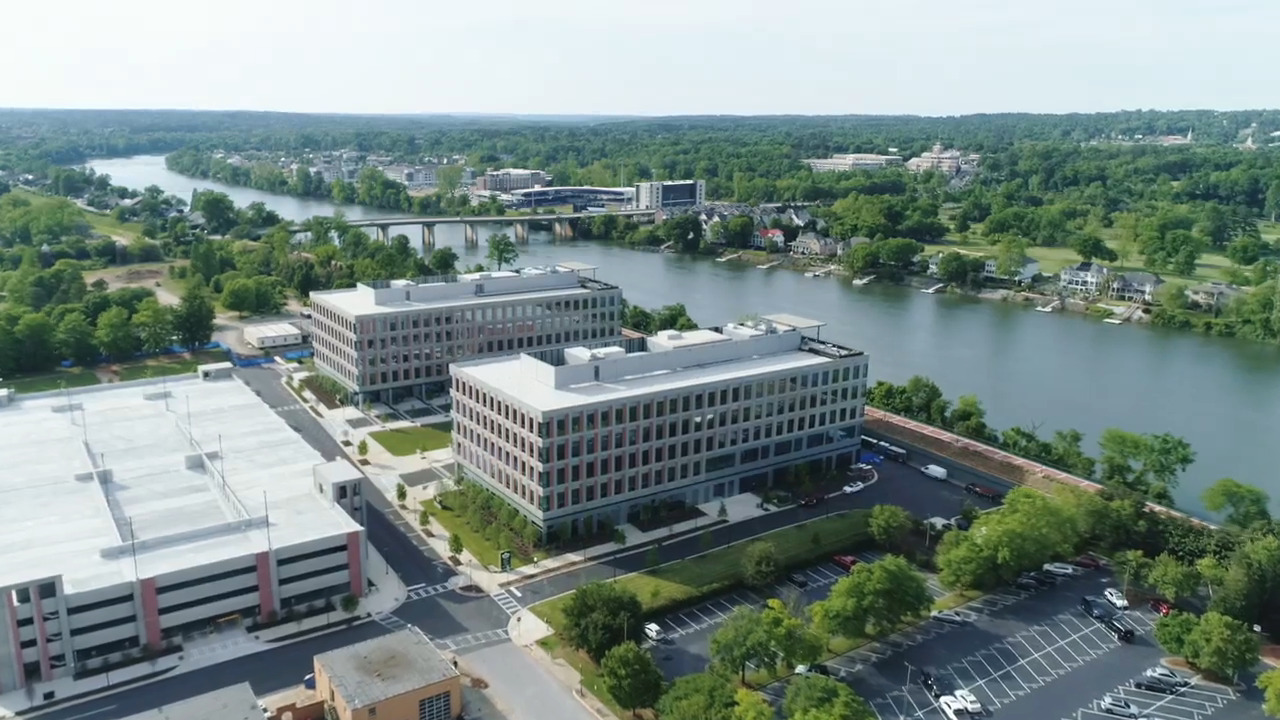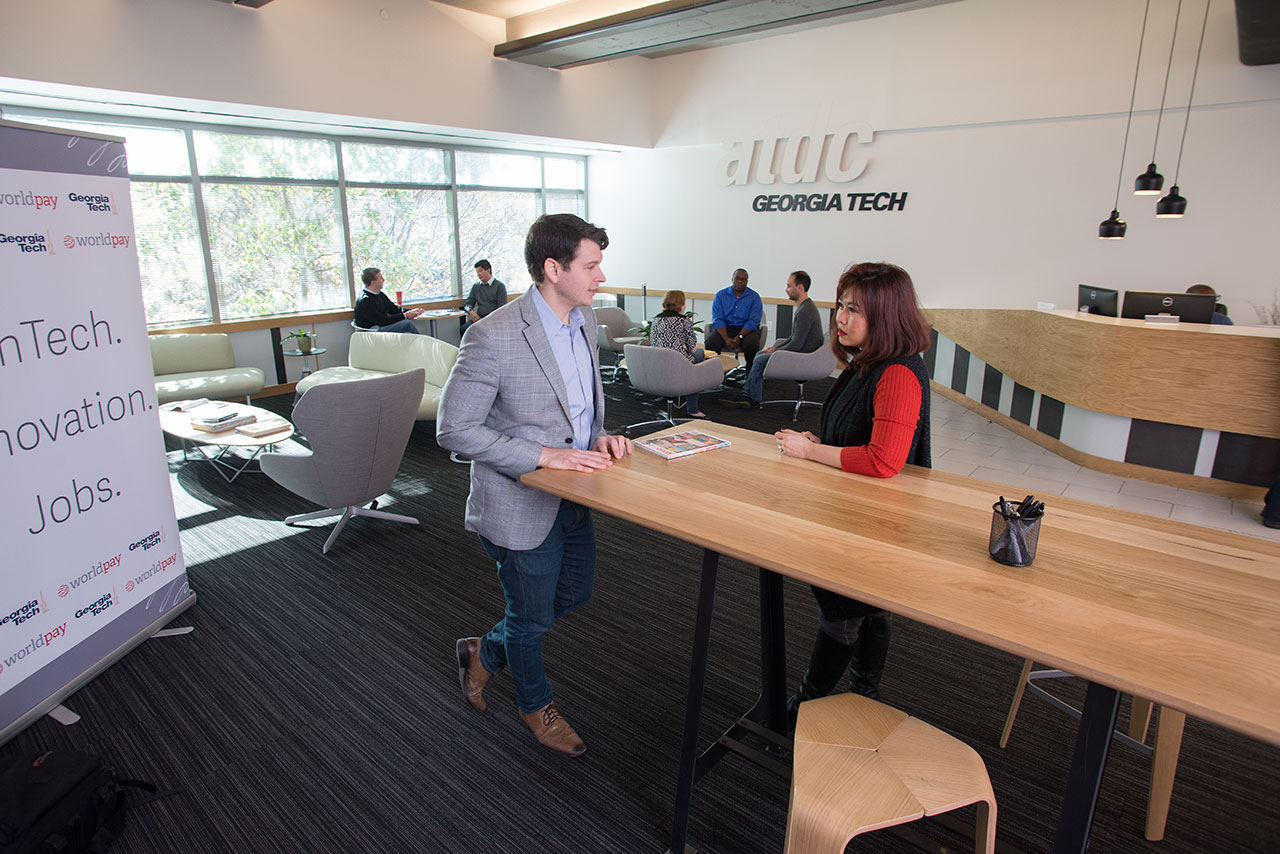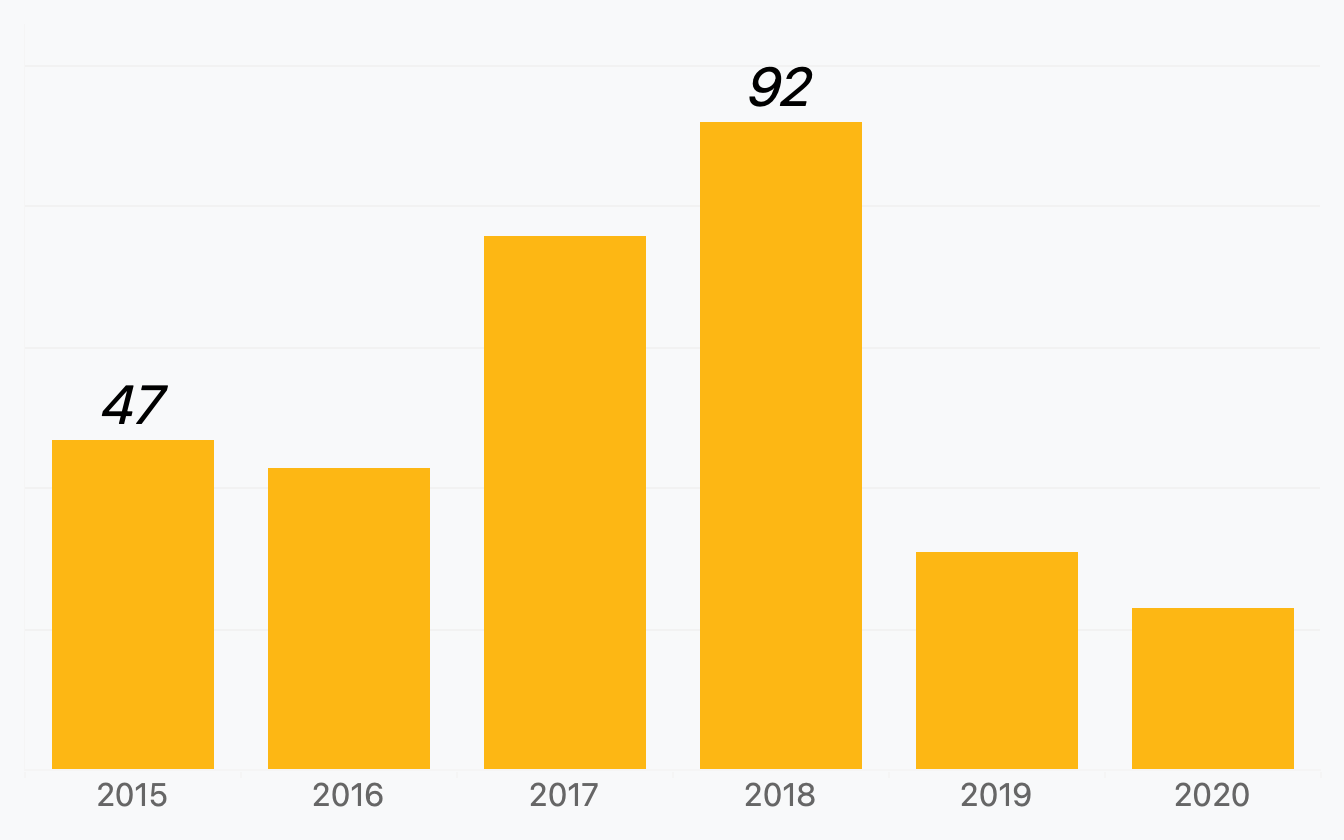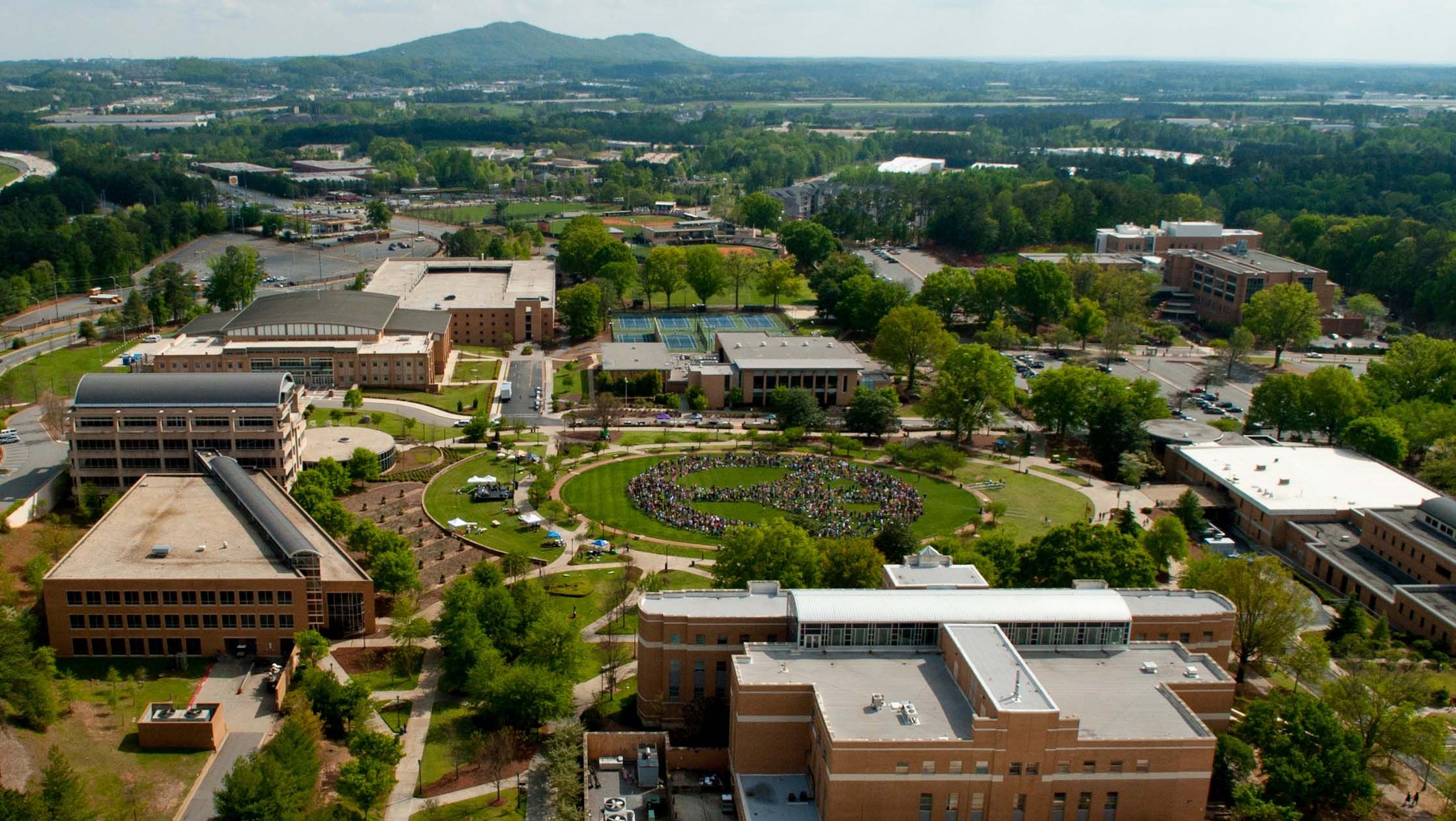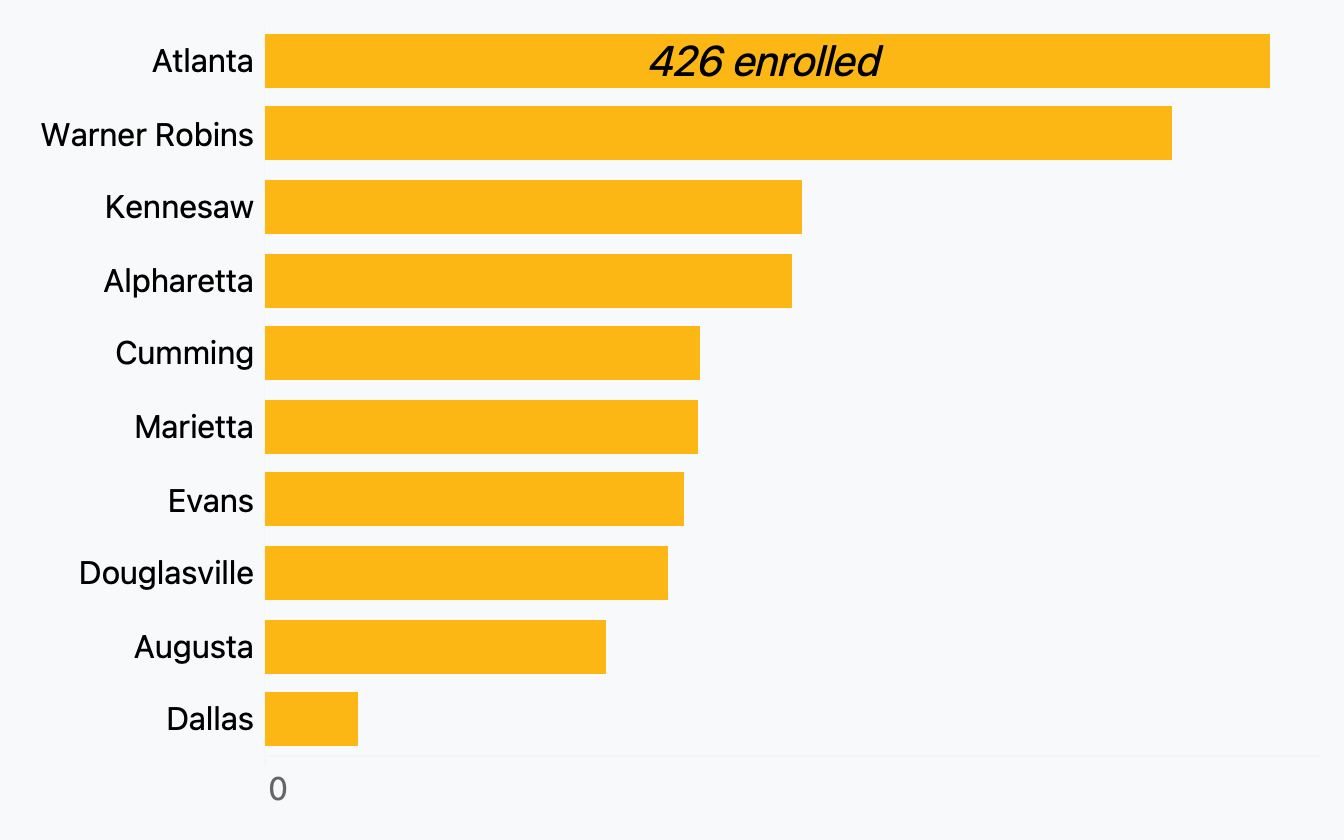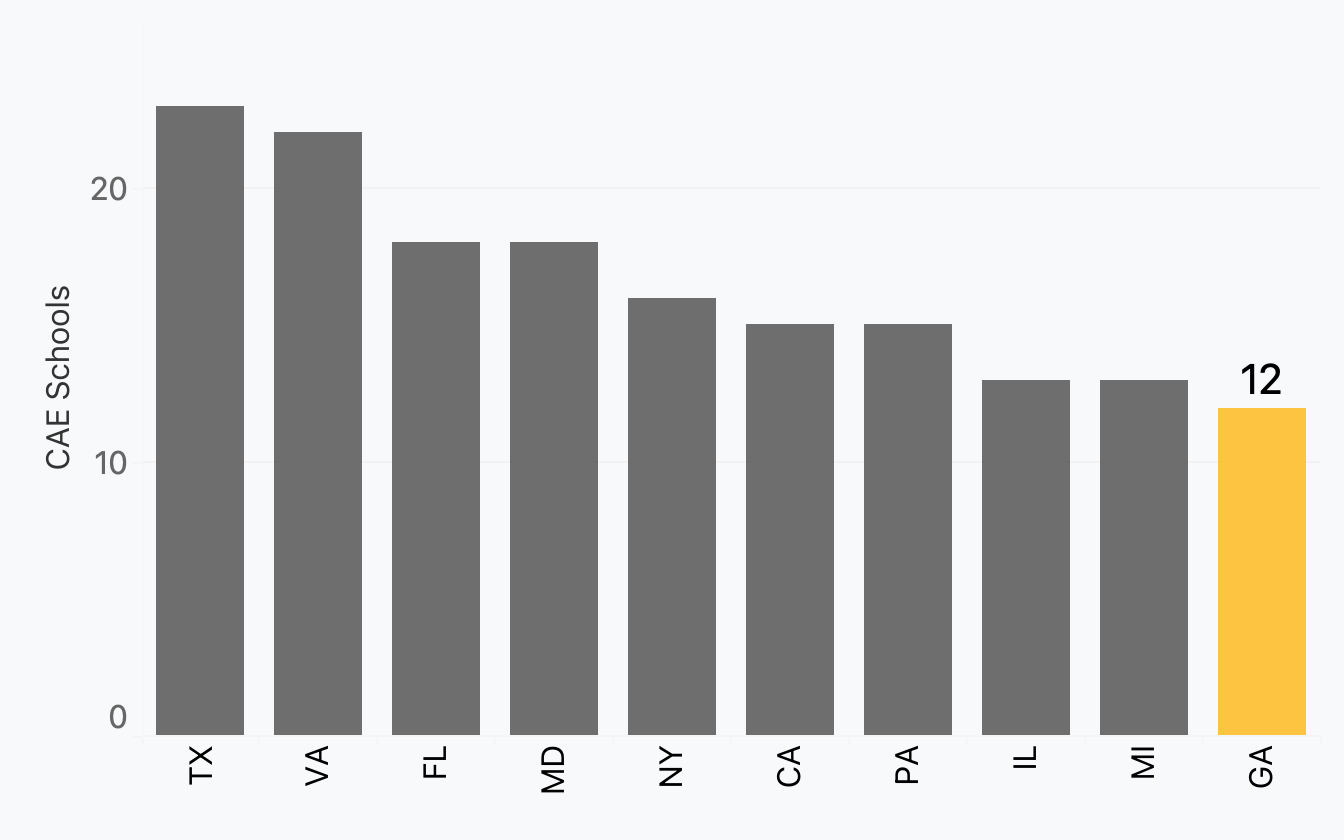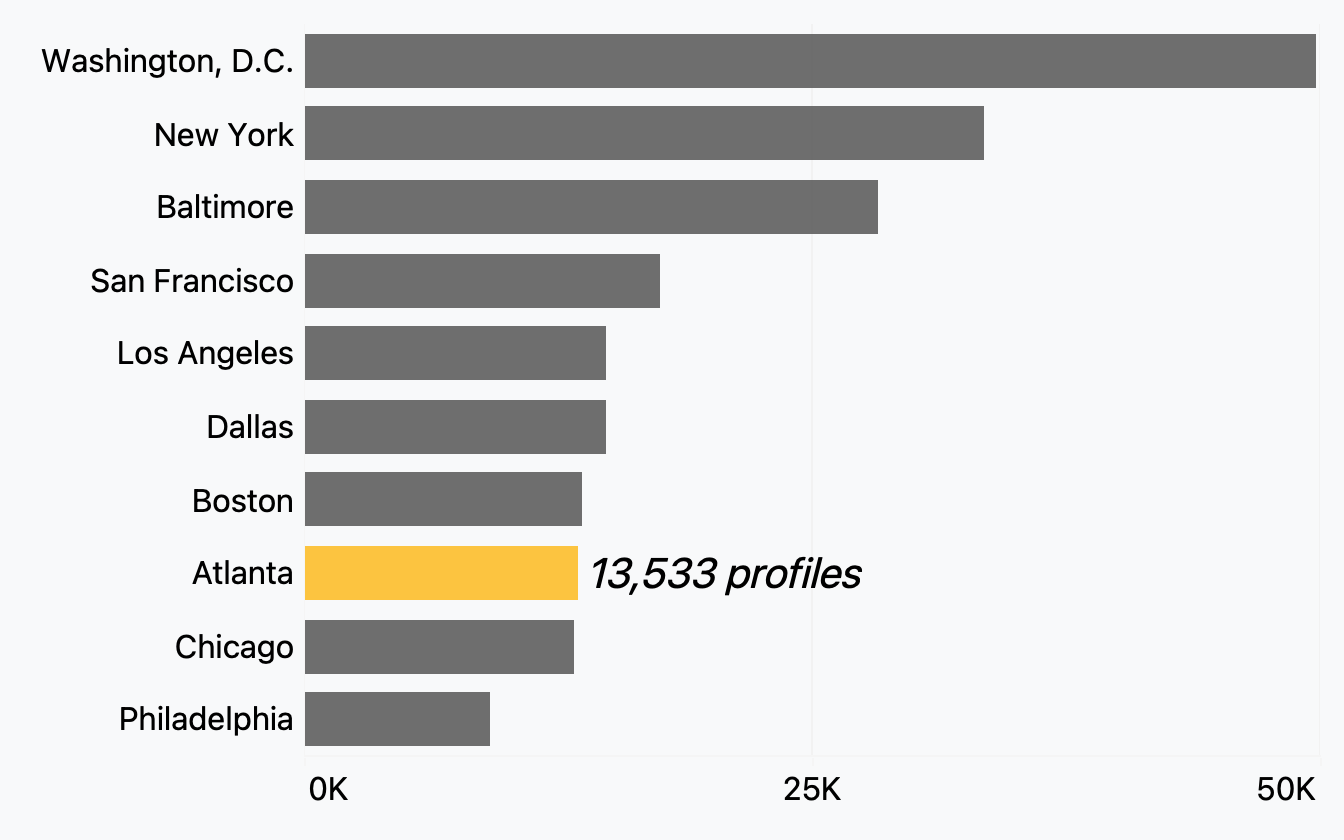Augusta's Cybersecurity Environment
This long-term investment by the U.S. government has given birth to the Fort Gordon Cyber District, an economic development initiative across seven counties in Georgia and South Carolina, with Augusta as the anchor.
The military's enormous investment in its new Cyber Command Center at Fort Gordon positions Augusta nicely as the hub of cybersecurity activity. The revitalized downtown center along the Savannah River has already seen rapid development around the industry.
The cornerstone here is another public sector investment, this time from the state of Georgia, which has recently built the Georgia Cyber Center. The 300,000 square foot building along the river is home to several private cybersecurity firms, in addition to an incubator for startups, Augusta University's School of Computer Science, and the Georgia Bureau of Investigation's cybercrime unit.
With such a commitment from the state and federal governments, it's no wonder why Unisys and many other private firms have found a home in Augusta as well.
The effort has also spawned new training and workforce development efforts within cybersecurity at colleges and universities across the state, including Augusta University.
This rapid development of coordinated efforts between the private sector, education institutions, and the state and federal governments has created a high functioning environment for the cyber industry to flourish in Augusta. With all of these groups connecting, the Augusta area has created a sustainable model for the cyber industry to continue growing.
Cybersecurity Contracts
These efforts have already paid off, with over 440 federal contracts issued between 2014 and 2022 for cybersecurity-related work. And the presence of Fort Gordon, again, has fueled growth of cybersecurity companies in Georgia.
